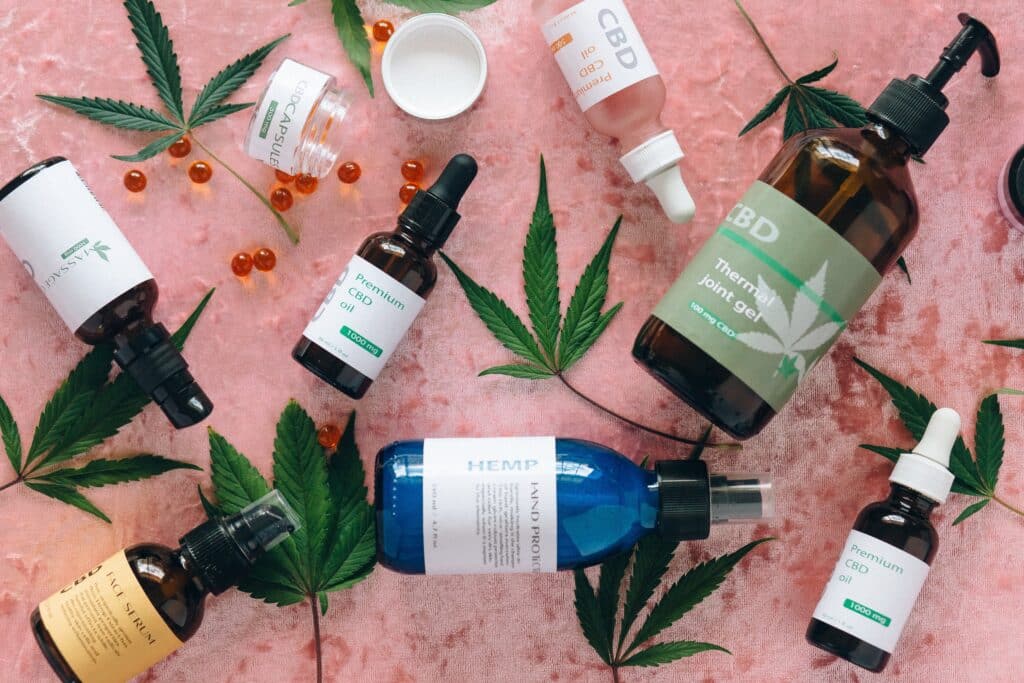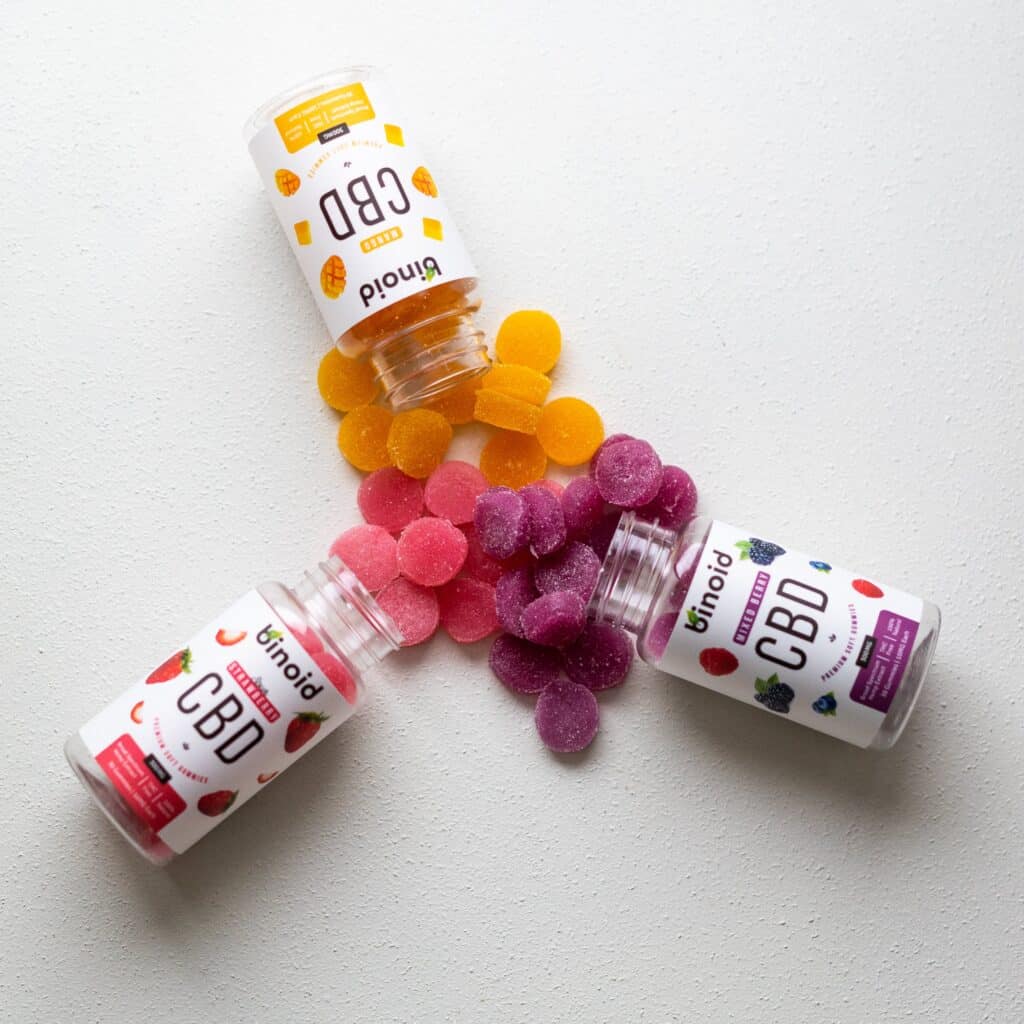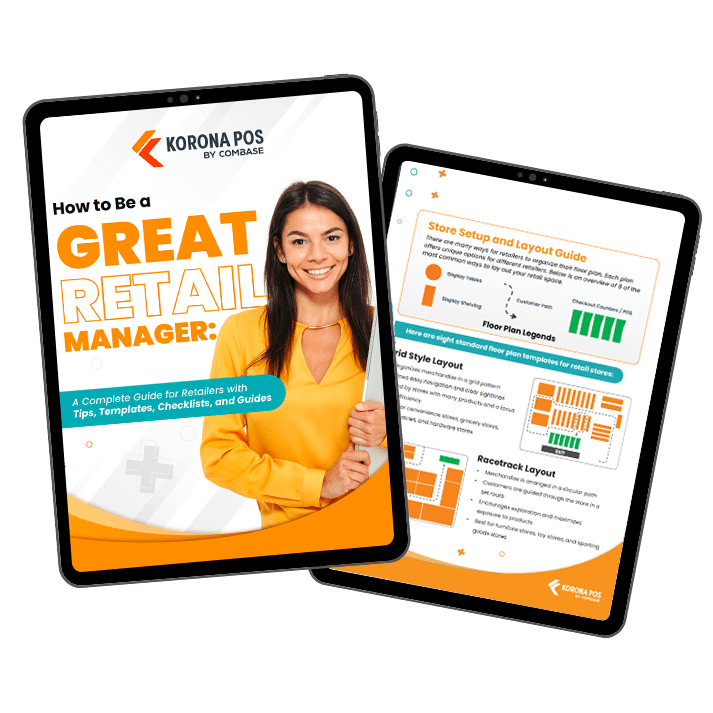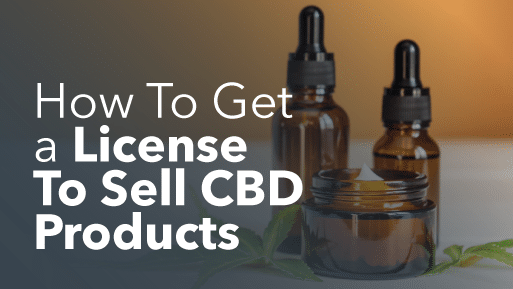
Key Takeaways
- Start with Local and State Rules: There is no single federal license for CBD sales. You must first research and comply with all specific state and local regulations for hemp and CBD.
- Obtain Basic Business Permits: Every CBD operation first needs standard business and tax permits.
- Verify Product THC Limits: All CBD products must contain 0.3% THC or less to comply with federal hemp laws.
- Secure a Certificate of Analysis (COA): Every product batch requires testing by a third-party lab.
- Address High-Risk Banking Needs: Many banks and processors avoid the CBD industry. KORONA POS can help in that regard.
In recent years, the popularity of CBD products has surged, with consumers embracing the potential health benefits of cannabidiol. And the trend is far from slowing down: the CBD industry is projected to grow at a CAGR of 21.7% over the next 5 years.
Whether you’re an entrepreneur looking to capitalize on this booming market or a passionate advocate eager to share the therapeutic properties of CBD, obtaining a license to sell these products is the crucial first step.
In this guide, we will unravel the intricacies of how to get a license to sell CBD products. It will also look at the legal landscape, the application process, and essential tips for success in running a CBD store.
What Is a CBD License?
A CBD license is a permit that allows a business to sell or distribute hemp-derived CBD products in accordance with state regulations. It confirms that the products meet legal THC limits and pass required safety tests.
Some states issue a specific hemp retail or hemp handler license, while others rely on standard business permits.
KEY TO KNOW
The license also indicates that the seller adheres to labeling rules and maintains accurate records. Many states check product origin and demand lab proof. Authorities use the permit to verify honest practices. A valid license protects consumers and supports stable growth for the CBD market in many regions today.
Do You Legally Need a License to Sell CBD?
For a retail CBD business, you do not need a single, federal “CBD License,” but you absolutely need specific state and local permits to sell legally.
- Difference from Standard Licenses: A specific Cannabinoid Hemp Retail License is often required in addition to your standard local business license and sales tax permit. It specifically governs product compliance, including verifying the THC content (which must be 0.3% or less) and ensuring safety. Some states also require a permit for wholesale distribution. Online sellers often require only a standard business license and a tax permit, yet they must also comply with state shipping regulations. Federally, the FDA oversees ingestible CBD claims, and the DEA steps in only when THC rises above 0.3% under the Farm Bill.
- When It Is Needed: You need a specialized state license whenever you sell ingestible hemp-derived products, like oils, edibles, or capsules, to consumers.
Sales Model | Key License/Permit Needed | Oversight/Challenge |
Retail (In-Store) | State Hemp Retail License, Local Zoning Approval | Strict age verification rules; inspection of physical premises. |
Wholesale | State Distributor/Processor Permit | Requires clear supply chain tracking and bulk product testing. |
Online Sales | State Retail License (often required), Age Verification System | Complex shipping compliance; major restrictions on digital advertising. |
Types of Licenses and Permits You May Need
A retail store selling CBD may need several licenses and permits. A state-issued CBD or hemp retail license allows the legal sale of hemp-derived products.
A business license confirms the company is registered with local authorities. A seller’s permit or sales tax license lets the store collect taxes.
PRO TIP
Some states require a health or safety permit for consumable products. If shipping products, a carrier-approved shipping permit may be needed. Depending on the location, a zoning permit ensures the store can operate in that area. Preparing all permits in advance prevents fines and keeps operations legal.
How to Get a CBD License (Step-by-Step Application Process)?
- Register Your Business
- Choose a legal entity (LLC, corporation, etc.).
- File formation documents with your state.
- Get an EIN from the IRS.
- Prepare Required Credentials
- Run criminal‐background checks if your state demands them. For example, New York requires an FBI Identity History Summary. (Agriculture and Markets)
- Gather business plans, security protocol, and operating procedures.
- Secure Reliable CBD Suppliers
- Vet suppliers for quality, traceability, and compliance.
- Ask for Certificates of Analysis (COAs) that show cannabinoid content and safety.
- Set Up Lab Testing
- Find a DEA‑approved or certified lab.
- Regularly test your products to confirm THC stays below legal limits.
- Complete the Application
- Identify the right licensing agency (state agriculture department, cannabis board, etc.)
- Fill out an application, include maps/plans (if required) and your business credentials. Many states ask for location maps.
- Submit required fees. For example, New York charges $300 for a cannabinoid hemp retail license.
- Undergo Review and Inspection
- Licensing agency reviews your materials. Some states inspect your facility.
- If approved, pay the final license fee, and receive your license.
- Maintain Compliance
- Track product batches and retain COAs.
- Renew license as required (annually in many states).
- Report to required authorities. USDA‑licensed growers must report planted acreage to their local Farm Service Agency.
Example (New York State):
In New York, retail CBD sellers need a Cannabinoid Hemp Retail License from the Office of Cannabis Management. The application requires a fee of $300 per retail location, payable annually.
How Much Does It Cost to Get a CBD License?
The cost of legally selling CBD varies significantly by state and your business type. Some states require only a standard business license and resale permit, costing a few hundred dollars. In contrast, states with specific cannabinoid hemp programs demand higher fees.
MUST-KNOW
Application fees for dedicated CBD licenses often start around $250 to over $2,500 depending on the state and activity. Cultivation and manufacturing licenses generally cost much more than retail permits. Always research your state and local requirements for precise, up-to-date fee information.
State-by-State Overview of CBD License Rules
While CBD is legal at the federal level, there are still significant differences in licensing processes from state to state. Here are three examples to look at.
California
Unsurprisingly, having had some legal cannabis for over 25 years, the Golden State is fairly lax with its CBD licensing. In fact, retailers do not need any special license at all to sell what the state calls “industrial hemp” products.
The only requirement for CBD retailers is that they sell products from producers officially licensed by the California Department of Public Health.
There are, nonetheless, a few stipulations in the world of California CBD that are worth mentioning:
- CBD “Inhalers” or vaporizers are illegal to sell.
- Restaurants may not sell perishable CBD items. All items must be “prepackaged and shelf stable.”
- To manufacture the CBD products that you sell, you must get licensing and approval from the Industrial Hemp Enrollment and Oversight (IHEO)
New York
All CBD merchants in the Empire State must obtain a “Cannabinoid Hemp Retail License” through the New York Business Express website. To apply for this license, businesses must have the following:
- Description of the type of cannabinoid hemp products you will sell
- Information on the “source(s) of the cannabinoid hemp products,” such as the manufacturer and distributor from whom you intend to purchase, including the name and contact information of all manufacturers and distributors
- Certificate of Authority from the Department of Taxation and Finance to collect sales tax in New York State
- Attestation of intent to comply with NYS Cannabinoid Hemp Program rules and regulations
- $300 Cannabinoid Hemp Retail License fee for each retail location selling cannabinoid hemp products, or $25 per month (up to 3 months) for a Temporary Retailer Permit.
Texas
Texas has interesting CBD laws regulated by the Department of State Health Services. For example, retailers cannot sell consumable hemp products grown in Texas. Stores can only sell products manufactured out of state.
As for retailers that do hope to sell CBD in Texas, there are two distinct types of permits:
DSHS Hemp Retail Registration
Retailers selling CBD products without making changes to those wholesale products will need to register with the DSHS. This registration can be done through an online module.
Be prepared to provide information regarding addresses, taxes, and the organization of your business entity. The registration fee is $155 per year per location.
DSHS Consumable Hemp Product License
Any retailer that relabels or repackages wholesale cannabis products must obtain this license. The process is more involved and painstaking than the simpler Retail Registration. Aspiring licensees must obtain several important items:
- A completed Federal Bureau of Investigation Authorization Form
- A Hemp Property Owner Letter describing details of your business
- A legal description of the property and Geographic Information System (GIS) coordinates for the exact location of the business
- Fingerprinting to be submitted to the Texas Department of Public Safety
- A license fee of $258 dollars per year.

What’s the Difference Between Selling CBD Online and In-Store?
Selling CBD online and selling it in a store follow different paths. Online sales offer a wider reach, lower rent costs, and strong demand for convenient orders. In-store sales offer face-to-face guidance, easier trust building, and immediate product pickup. Online platforms need strong SEO, clear product pages, and reliable shipping partners.
PRO TIP
Stores need clean displays, trained staff, and steady foot traffic. Online sellers adapt to strict payment rules and digital marketing limits. In-store sellers must comply with local zoning regulations, retail permits, and product storage requirements. Both models support growth, yet each one requires unique strategies for compliance, visibility, and customer experience.
Common Mistakes When Applying for a CBD License
A CBD license application often fails because applicants skip key documents or ignore basic rules. Many states enforce strict standards for product safety and compliance. A clear plan and careful preparation support a smoother approval process.
Missing Certificate of Analysis (COA)
Regulators require testing data for every product batch. The COA proves your product contains legal amounts of THC, which is 0.3% or less. Without accurate testing, the application fails immediately. Send samples to an accredited, third-party lab for testing.
Inaccurate or Misleading Labels
Product labels must list all ingredients and correct CBD/THC potency. Do not make unproven health claims on the packaging. Incorrect information leads to application rejection or fines. Align all label claims exactly with the COA test results.
Incomplete Application Forms
A business license application often requires extensive documentation. Missing even one small attachment causes an immediate delay. The entire package must be correct and consistent. Use an official checklist. Get a lawyer or consultant to review all forms.
Improper Payment Gateway Setup
Many banks and payment processors avoid CBD businesses due to federal status. Choosing a non-compliant processor can cause unexpected account freezing. The business needs a compliant payment system. Partner with a high-risk payment processor that specializes in the CBD space.
Payment processors giving you trouble?
We won’t. KORONA POS is not a payment processor. That means we’ll always find the best payment provider for your business’s needs.
Ignoring Local Zoning Laws
State-level approval is not enough for a physical business location. Local zoning rules may forbid CBD operations near schools or residential areas. Check city and county rules before signing a lease. Check municipal and county ordinances regarding your specific business address.
Poor Financial Planning/Documentation
Regulators aim to ensure business stability and secure legitimate funding sources. You must provide detailed operating budgets and clear financial statements. Unclear financial records raise major red flags. Prepare detailed, realistic financial projections and clean, verifiable funding records.

Free printable templates and checklists to help you manage retail operations with ease
Choose KORONA POS as Your CBD Partner
Entering the CBD market and obtaining a license to sell products requires thorough research, meticulous planning, and unwavering dedication to compliance and quality.
WE CAN HELP YOU
One of the most difficult aspects is finding a CBD payment processor. Many retailers run into interruptions and complications due to the stigma around “high-risk” products that are related to marijuana. The best CBD point of sale systems let you choose your processor. Using KORONA POS software for CBD stores, whatever works best to optimize your sales will also work for us.
Click the link below to learn more about our solutions for hemp, cannabis, tobacco, and liquor shops! Call us on 833-200-0213 or book a demo with one of our product specialists by clicking on the button below.
Speak with a product specialist and learn how KORONA POS can power your business.
FAQs
1. How do I start selling CBD products?
To start selling CBD products, first, thoroughly research and understand the legal regulations in your jurisdiction regarding the sale of CBD. Next, develop a comprehensive business plan that includes sourcing high-quality products, obtaining necessary licenses and permits, and establishing a strong online presence. Finally, prioritize customer education, exceptional service, and compliance with industry standards.
2. How much does it cost to get a dispensary license in DC?
The application fee for a standard Retailer License in DC is $8,000, with an additional $16,000 for the first year’s annual licensing fee upon approval. However, Social Equity Applicants (SEA) benefit from significantly reduced fees, paying a $2,000 application fee and a $4,000 annual licensing fee for the first year of the Retailer License.
3. Is selling CBD profitable?
Yes, selling CBD can be profitable, as it is a popular item with a constantly growing market projected to reach billions. Profitability depends on factors like setting the right prices to cover overhead costs, choosing a profitable niche, and developing an effective marketing strategy.
4. Can I sell CBD without a license?
While you may not need a single specific “CBD license,” you will likely need to obtain standard business and resale licenses from your state and local authorities. Regulations vary widely by state, so you must research and comply with local laws regarding consumable hemp products and THC limits (typically 0.3% or less).
5. How to become a CBD distributor?
To become a CBD distributor, start by conducting research to identify high-quality, unique products and securing reputable supply chain partners who offer competitive distributor-level pricing. You will also need to handle business setup, including licensing, and focus on selling to retailers, potentially including options for white-labeling.











